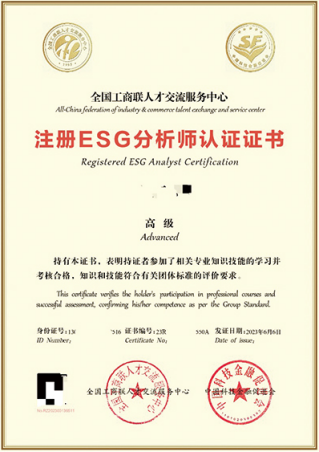ESG Disclosure Core Competence Short Certificate Course
As climate change and social responsibility take center stage, high-quality ESG disclosure has become essential for companies and investors seeking competitive advantage and stakeholder trust. This intensive part-time course equips senior management, ESG report writers, and certification candidates with a structured pathway to master leading international ESG reporting frameworks and convergence trends.
Participants will begin with the origins and practical applications of authoritative standards—GRI, SASB, TCFD, CDP, SBTi, and IFRS—delving into each framework’s reporting logic, metric structure, and disclosure priorities. We’ll explore recent consensus-driven moves toward framework integration, offering forward-looking perspectives on cross-border transparency and comparability. Complementing theory with market practice, we’ll examine green finance policies alongside carbon accounting methods, internal carbon pricing, and green bond case studies to illustrate how sustainability can protect the environment while unlocking new business opportunities, enhancing operational resilience, and strengthening corporate reputation.
- Master major international ESG reporting frameworks and their convergence trends
- Understand the latest developments and business implications of sustainable practice
- Gain proficiency in HKEX ESG reporting requirements and disclosure techniques
- Build a systematic foundation for various ESG certification exams
 Course Outline
Course Outline
| Module | Topic | Hours |
| 1 | International Initiatives & ISO Standards | 3 |
| 2 | International Disclosure Standards | 3 |
| 3 | International ESG Ratings | 3 |
| 4 | Carbon Auditing | 3 |
| 5 | Supply Chain Sustainability | 3 |
| 6 | Waste & Energy Management | 3 |
| 7 | Corporate Adaptation & Stakeholder Management | 3 |
| 8 | ESG Reporting Skills I: Governance, Materiality & Boundaries | 3 |
| 9 | ESG Reporting Skills I: Governance, Materiality & Boundaries | 3 |
| 10 | ESG Reporting Skills III: Climate Disclosures, SBTi & HKEX Guidance | 3 |
 Course Details
Course Details
Study Duration
Total: 30 hours
Weekend Intensive
5 weekends, 09:00–12:00 & 14:00–17:00
Study Mode
Part-time, face-to-face
Language & Materials
Instruction: Mandarin (optionally English)
Completion Criteria
Minimum 70% attendance
Practice test score of at least 50%
Certificate of Completion awarded upon meeting requirements
SFC-recognized CPT certificate available on request
 Target Audience
Target Audience
Board directors, senior executives, and in-house or external ESG report preparers for listed companies
Board directors, senior executives, and in-house or external ESG report preparers for listed companies
Candidates preparing for ESGCP, SASB FSA, TCFD or related certifications
Job seekers aiming to enhance their resumes with sustainability credentials
Certified ESG Analyst

Exam Introduction
The Certified ESG Analyst exam is divided into three levels: primary, intermediate, and advanced according to the knowledge and closeness to the actual business, focusing on the assessment of ESG introduction, ESG core knowledge structure, and ESG business application respectively.
Taking the syllabus of the Advanced Certified ESG Analyst exam as an example, the exam mainly includes.
- i
ESG disclosure standards and ESG reporting
- ii
ESG data analysis
- iii
ESG rating
- iv
ESG regulation
- v
Due diligence management
- vi
ESG portfolio investment strategy
- vii
Frontier hotspot analysis and other seven dimensions of assessment
Exam Format
Suggested applicants
undergraduate and above discipline students, including but not limited to.
Finance, economics, environment, law, energy, biochemistry, construction and other professional college students.
Corporate ESG positions.
Members of the Board of Directors' Sustainability Committee, senior executives (CE0, CFO, CI0, CRO, etc.), risk management positions, investor relations positions, internal control and compliance positions, financial positions.
ESG rating and consulting direction.
ESG consultant, M&A business ESG due diligence research, audit business (ESG), ESG rating, etc.
ESG investment and financial direction.
Commercial banks (including but not limited to lending business, risk management, green credit, etc.), insurance companies (including but not limited to product design, ESG investment), securities companies (including but not limited to wealth management, brokerage business, investment banking, institutional business, research business), asset managers, fund managers, family offices, private banks, high net worth customer service.
